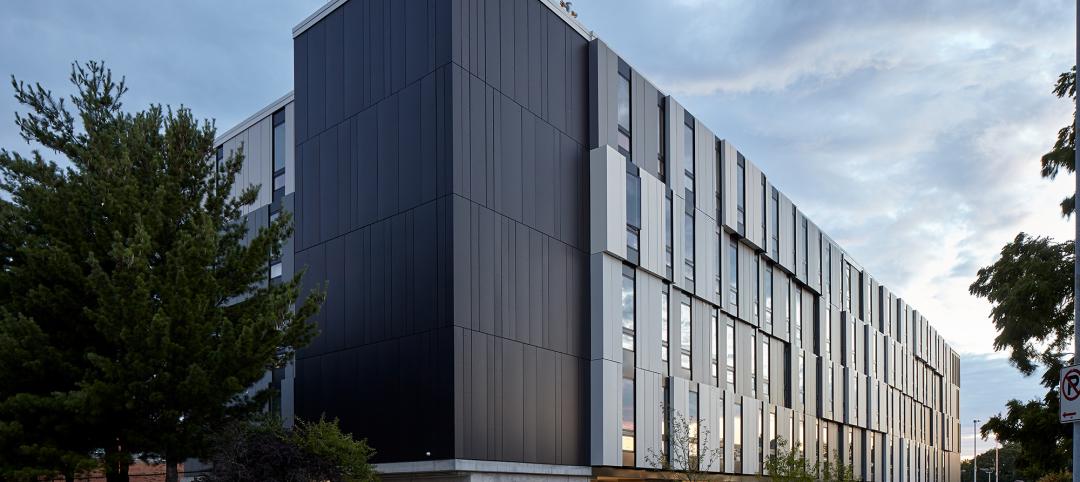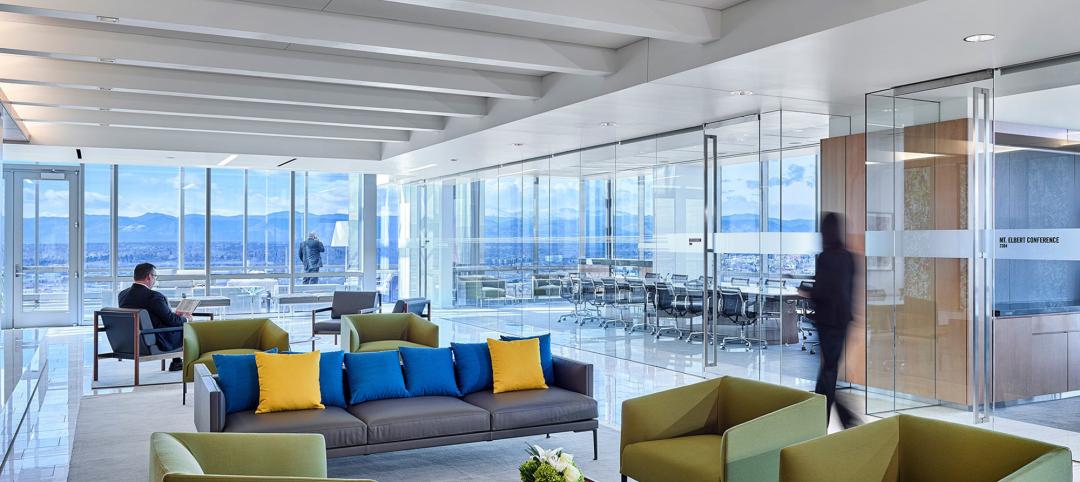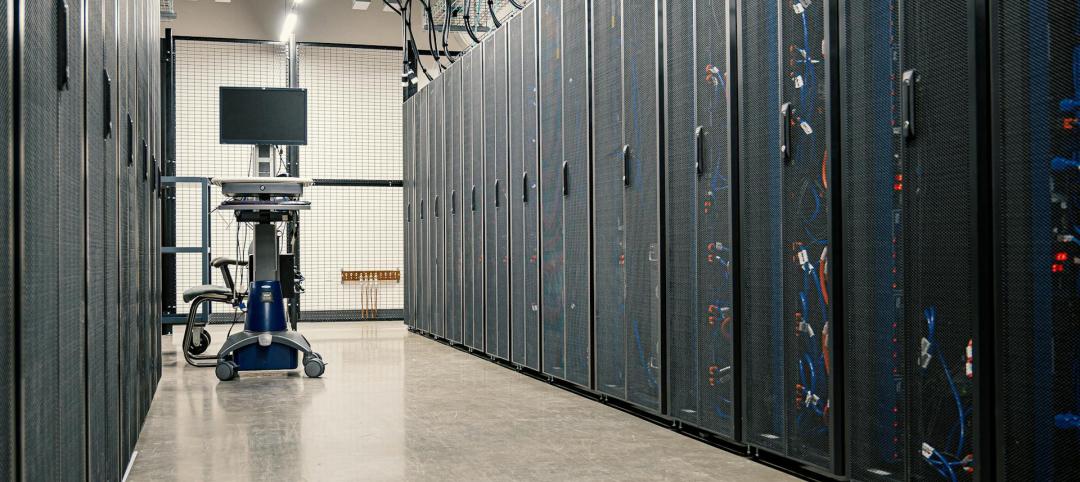A McDonald's restaurant in Riverside, Calif., was recently awarded LEED Gold certification, the first McDonald's west of the Mississippi, and only the fourth in the U.S., to receive the designation.
"This gold certification from LEED underscores our rigorous sustainability initiatives," said Candace Spiel, McDonald's owner/operator. "
This restaurant is owned and operated by Tom and Candace Spiel and stood as a McDonald's for 44 years. In 2010, the restaurant was completely rebuilt and reopened on October 14, 2010 containing a host of green features such as low-flow plumbing fixtures, recycled denim insulation inside the building, native drought-tolerant plants to reduce water consumption by landscape and solar panels.
The restaurant also includes an interactive touch-screen display for visitors to learn about the building's features, environmental sustainability, and how individuals can reduce their carbon footprint.
The University Avenue McDonald's has achieved the following water and energy-savings.
- The restaurant's solar array has generated electrical energy which saves approximately 8,950 kWH per month of utility usage, which is equal to the power usage of 13 average Riverside homes for one month. Increased efficiencies such as low-E glass windows and LED lighting helped realize an additional energy savings of 2,870 kWH per month, which is equal to an additional four Riverside homes.
- Saved approximately 250,000 gallons of water, which is equal to the water of eight 20 ft x 40 ft swimming pools.
- Due to permeable pavers, about 283,000 gallons of rainfall water is diverted from storm water system per year, which is equal to the water of nine 20 ft x 40 ft swimming pools.
"We are delighted that this local McDonald's has taken such significant measures to conserve our natural resources while educating residents about the importance of energy conservation," said Ron Loveridge, mayor of Riverside.
Beginning as manager trainee and crewperson, respectively, over the last 40 years Tom and Candace have risen within the ranks of the McDonald's system to own and operate nine McDonald's restaurants in the Inland Empire located in Chino, Ontario, Montclair, Pomona, Riverside and Rubidoux. Both Tom and Candace are members of the McDonald's Operators' Association of Southern California, which is comprised of more than 120 small business owners who operate more than 600 McDonald's restaurants in the counties of Los Angeles, Orange, Riverside, San Bernardino, and Ventura. BD+C
Related Stories
Curtain Wall | Aug 15, 2024
7 steps to investigating curtain wall leaks
It is common for significant curtain wall leakage to involve multiple variables. Therefore, a comprehensive multi-faceted investigation is required to determine the origin of leakage, according to building enclosure consultants Richard Aeck and John A. Rudisill with Rimkus.
MFPRO+ News | Aug 14, 2024
Report outlines how Atlanta can collaborate with private sector to spur more housing construction
A report by an Urban Land Institute’s Advisory Services panel, commissioned by the city’s housing authority, Atlanta Housing (AH), offered ways the city could collaborate with developers to spur more housing construction.
Adaptive Reuse | Aug 14, 2024
KPF unveils design for repositioning of Norman Foster’s 8 Canada Square tower in London
8 Canada Square, a Norman Foster-designed office building that’s currently the global headquarters of HSBC Holdings, will have large sections of its façade removed to create landscaped terraces. The project, designed by KPF, will be the world’s largest transformation of an office tower into a sustainable mixed-use building.
Sustainability | Aug 14, 2024
World’s first TRUE Zero Waste for Construction-certified public project delivered in Calif.
The Contra Costa County Administration Building in Martinez, Calif., is the world’s first public project to achieve the zero-waste-focused TRUE Gold certification for construction. The TRUE Certification for Construction program, administered by Green Business Certification Inc. (GBCI), recognizes projects that achieve exceptional levels of waste reduction, reuse, and recycling.
Modular Building | Aug 13, 2024
Strategies for attainable housing design with modular construction
Urban, market-rate housing that lower-income workers can actually afford is one of our country’s biggest needs. For multifamily designers, this challenge presents several opportunities for creating housing that workers can afford on their salaries.
University Buildings | Aug 12, 2024
Planning for growing computer science programs
Driven by emerging AI developments and digital transformation in the business world, university computer science programs are projected to grow by nearly 15% by 2030.
Energy Efficiency | Aug 9, 2024
Artificial intelligence could help reduce energy consumption by as much as 40% by 2050
Artificial intelligence could help U.S. buildings to significantly reduce energy consumption and carbon emissions, according to a paper by researchers at the Lawrence Berkeley National Laboratory.
Sponsored | Healthcare Facilities | Aug 8, 2024
U.S. healthcare building sector trends and innovations for 2024-2025
As new medicines, treatment regimens, and clinical protocols radically alter the medical world, facilities and building environments in which they take form are similarly evolving rapidly. Innovations and trends related to products, materials, assemblies, and building systems for the U.S. healthcare building sector have opened new avenues for better care delivery. Discussions with leading healthcare architecture, engineering, and construction (AEC) firms and owners-operators offer insights into some of the most promising directions. This course is worth 1.0 AIA/HSW learning unit.
Office Buildings | Aug 8, 2024
6 design trends for the legal workplace
Law firms differ from many professional organizations in their need for private offices to meet confidentiality with clients and write and review legal documents in quiet, focused environments
Data Centers | Aug 8, 2024
Global edge data center market to cross $300 billion by 2026, says JLL
Technological megatrends, including IoT and generative AI, will require computing power to be closer to data generation and consumption, fueling growth of edge IT infrastructure, according to a new JLL report.

















